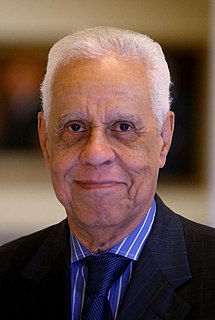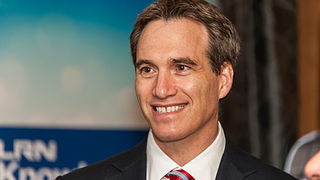A Quote by Elijah Cummings
It was to carry the American democratic journey beyond these failings that Black citizens and civil rights workers risked unemployment, violence and death.
Quote Topics
Related Quotes
The workers who harvest our food have been systematically denied the basic rights that are granted to all other American workers. They can be fired for trying to form a union or for attempting to improve their working conditions. They are not eligible for overtime pay, disability, or even unemployment insurance.
I would not have suffered my name to have been used by my friends on anywise as President of the United States, or candidate for that office, if I and my friends could have had the privilege of enjoying our religious and civil rights as American citizens, even those rights which the Constitution guarantees unto all her citizens alike.
They came up with a civil rights bill in 1964, supposedly to solve our problem, and after the bill was signed, three civil rights workers were murdered in cold blood. And the FBI head, Hoover, admits that they know who did it, they've known ever since it happened, and they've done nothing about it. Civil rights bill down the drain.
My friends, to those who say that we are rushing this issue of civil rights, I say to them we are 172 years late. To those who say that this civil-rights program is an infringement on states’ rights, I say this: The time has arrived in America for the Democratic Party to get out of the shadow of states' rights and to walk forthrightly into the bright sunshine of human rights.
For black politicians, civil rights organizations and white liberals to support the racist practices of the University of Michigan amounts to no less than a gross betrayal of the civil rights principles of our historic struggle from slavery to the final guarantee of constitutional rights to all Americans. Indeed, it was practices like those of the University of Michigan, but against blacks, that were the focal point of much of the civil rights movement.
Obama was elected in a flourish of promise that many in the African-American community believed would help not only to symbolize African-American progress since the Civil War and Civil Rights Acts but that his presidency would result in doors opening in the halls of power as had never been seen before by black America.
If the Rev. Martin Luther King Jr.'s civil rights movement made demands that altered the course of American lives and backed up those demands with the willingness to give up your life in service of your civil rights, with Black Lives Matter, a more internalized change is being asked for: recognition.
For all great innovations, someone took a risk. They risked capital; they risked their energy; they risked their opportunity cost; and more important, they risked failure. We can't innovate without the belief that we can succeed, the confidence that others will be there to help us on the journey, and the security that we will not be punished if we fail to reach our goal. A fast-moving world demands innovation for long-term success.
When you expand the civil-rights struggle to the level of human rights, you can then take the case of the black man in this country before the nations in the UN. You can take it before the General Assembly. You can take Uncle Sam before a world court. But the only level you can do it on is the level of human rights. Civil rights keeps you under his restrictions, under his jurisdiction. Civil rights keeps you in his pocket.































